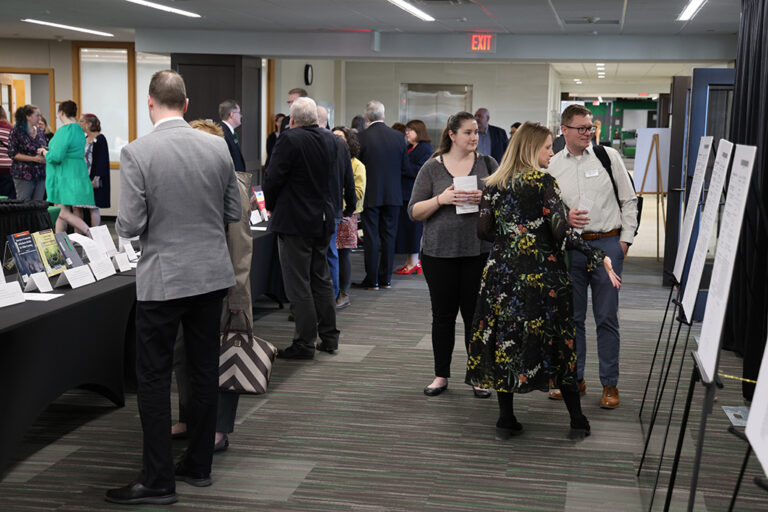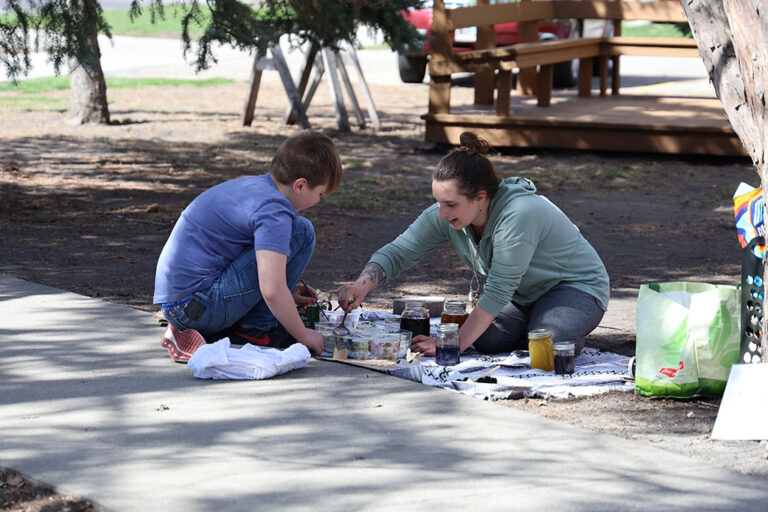UND faculty member: How society rationalizes teachers’ low pay
Out-of-date stereotypes hurt the profession, says Diana D’Amico Pawlewicz, whose academic profile is growing nationwide

In the world of education policy, Diana D’Amico Pawlewicz is a name more people are starting to recognize.

The assistant professor in the UND College of Education & Human Development has published research in places such as the Harvard Educational Review, American Educational Research Journal and History of Education Quarterly, among several others.
Her perspective as a historian also has gained national traction, as her research has been cited in newspapers from coast to coast and her writing has appeared in The Washington Post and San Francisco Chronicle.
From podcast appearances to scheduled book signings in New York City and Washington D.C., her forthcoming debut book from Rutgers University Press is turning heads. Blaming Teachers: Professionalization Policies and the Failure of Reform in American History hits shelves in August. According to one review from a renowned historian, “There is a lot of life to this book, which is full of many terrific narratives that are engaging, often astounding, and some almost comical. It’s easy to ‘blame teachers’ and this excellently researched book offers a way to work through that problem.”
As this range of experiences makes clear, D’Amico Pawlewicz’s years of inquiry, research and peer reviewed publication have paid off. And she is eager to share what she’s learned with the world.
History’s consistencies in education
In particular, D’Amico Pawlewicz’s research has helped her answer a key question in the history of public education: Why does society so stubbornly resist paying teachers living wages and improving their working conditions?
At the heart of this resistance, she writes in The Washington Post, are “regressive gendered tropes – the idea that teaching was women’s work – that brought women into the public schools in the first place and isolated them at the lowest levels of the school bureaucracy.”
D’Amico Pawlewicz quotes superintendents from the 1850s (among other sources) to show that authority figures deemed schools extension of the domestic space, and in this formulation, teachers stood as stand-in mothers. As teachers fought to form unions in the early 20th century, they ran into similar critiques. As one school board member explained in 1910, “I would like to have it understood that schools are conducted for the children, not for the benefit of the teachers.”
To this day, more than 75 percent of the nation’s 3.7 million teachers are women, she writes.
D’Amico Pawlewicz reasons that the historical mother-teacher logic casting women as self-sacrificing caretakers persists in the education system, limiting teachers’ voices and rationalizing low pay. Meanwhile, the blame for various social problems consistently falls on educators.
Window into society
According to D’Amico Pawlewicz, public education stands as one of the most important social institution in the United States. In many ways, she claims, what happens in schools provides a window peering into broader society.
“The nation’s public schools have been a theater for social justice,” she explained. “At times the schools have served as critical levels of change but at others they have functioned as barriers, reproducing inequality.”
Politics, economics and social issues – notoriously macro-scale problems that are hard to individually handle – can all be reflected in the way children are taught, what they read and how they are raised.
“When we’re making changes in the classroom, we’re hoping that these changes are going to impact things beyond the school,” Pawlewicz said. “Taxpayers support public schools not just because they want children to learn to read and add, but also because of the implicit expectation that schools will shape the children of a generation into responsible workers and citizens.”
Rather than the stuff of textbooks or mere backdrop, for D’Amico Pawlewicz, the past is powerful; historical inquiry and analysis offers a “powerful way to examine, frame, explain and disrupt the study of contemporary issues.”
‘Research must be useful and meaningful’
According to D’Amico Pawlewicz, even as much has changed over the history of American education, one notable constant is that policymakers have constantly looked to the nation’s public schools to solve large, social problems and viewed teachers as a key point of change and reform.
 “Historically, we’ve agreed that teachers are critically important. That just hasn’t always translated to a lot of respect,” explains D’Amico Pawlewicz in her new book. “Policymakers and the broader public never doubted the significance of teachers’ work; at the same time, members of those groups never trusted teachers to determine what the work was or how it ought to be conducted.”
“Historically, we’ve agreed that teachers are critically important. That just hasn’t always translated to a lot of respect,” explains D’Amico Pawlewicz in her new book. “Policymakers and the broader public never doubted the significance of teachers’ work; at the same time, members of those groups never trusted teachers to determine what the work was or how it ought to be conducted.”
History may not yield specific policy prescriptions, “But that doesn’t mean history has no bearing on the policy decisions that we make each day,” D’Amico Pawlewicz said. “Knowledge of the past can raise a range of really critical questions that can push us to engage conversations we either didn’t realize we needed to have, or that we were hesitant to have. And that may be most valuable of all.”
That vantage point has led D’Amico Pawlewicz to look beyond the past to schools of the present. Through a range of existing and new interdisciplinary collaborations, she has explored everything from teacher hiring practices and the demographic composition of the teacher workforce to the role of new teachers in supporting the social emotional learning of school children.
“The most basic principle motivating my work is that research must be useful and meaningful, not just to other academics but to the broader public,” she said.
Reflecting that spirit, along with colleagues in the College of Education & Human Development, D’Amico Pawlewicz is creating a new initiative focused on rural education, equity, and economic development.
“Around the state, communities, parents and educators are grappling with difficult problems,” she explained. “How can we create partnerships and collaborate to produce research that answers the questions people care most about and leads to change that positively impacts people’s lives?”
For D’Amico Pawlewicz, these are the sorts of endeavors the University was built to take on.
“I am just thrilled to be here doing this work with top-rate colleagues and students who are committed and creative,” she said. “I am definitely feeling UND Proud!”



